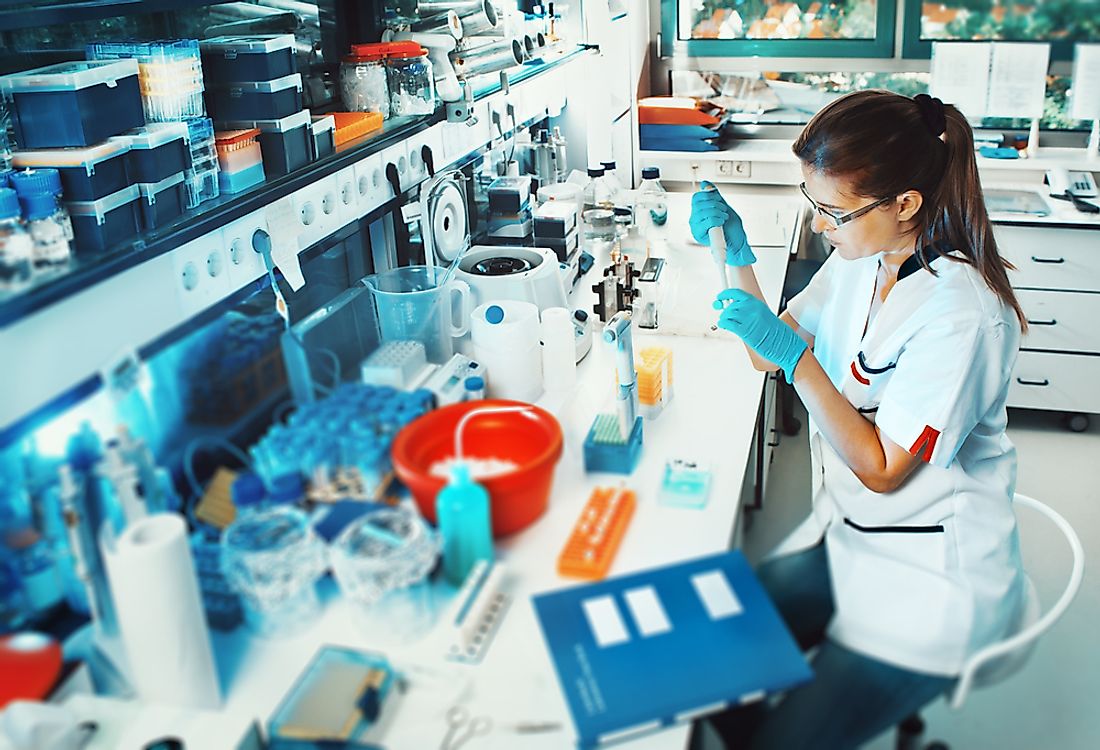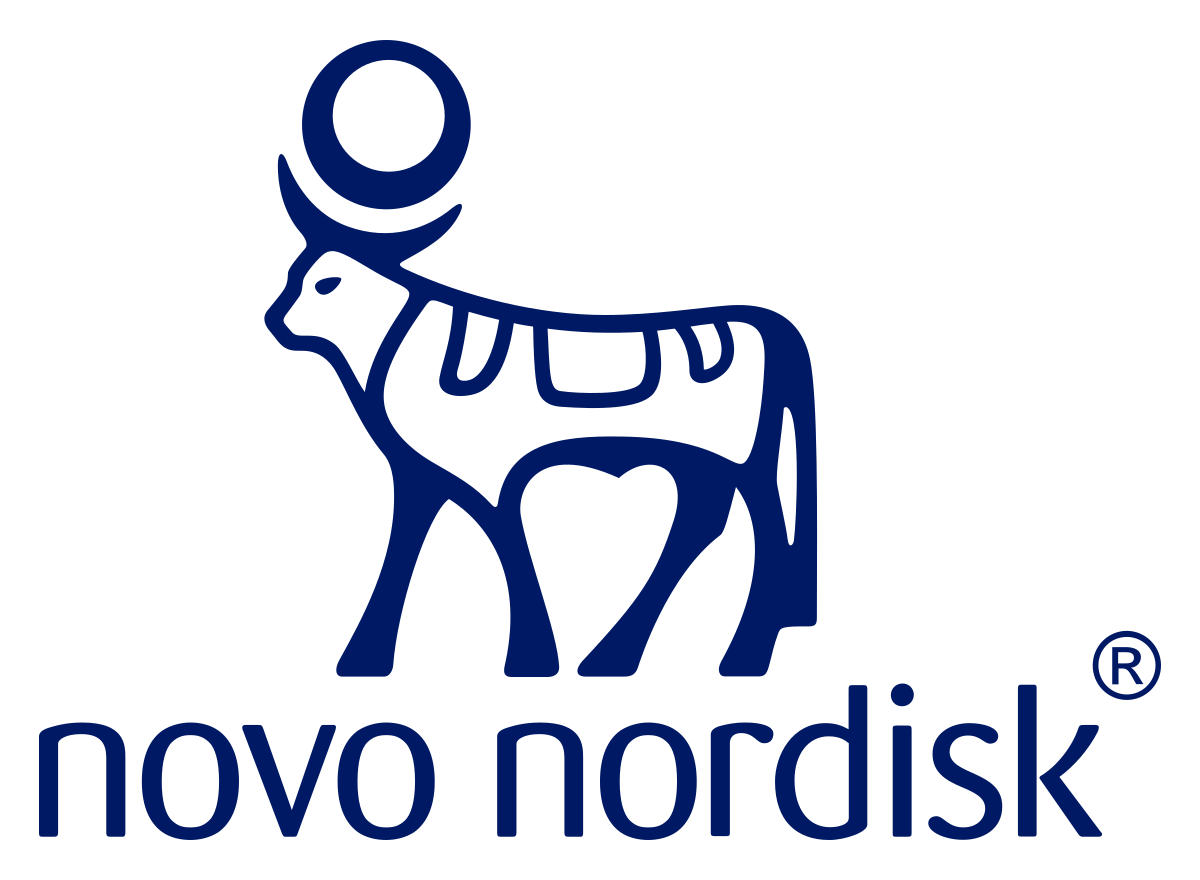Top 10 Best Biotechnology Companies In USA 2023
Top 10 Best Biotechnology Companies In USA 2023

INTRODUCTION
Biotechnology companies in the U.S. have been on the rise since the start of the 21st century. In 2023, the U.S. biotechnology industry will be booming and will be home to many innovative and groundbreaking companies. These companies are heavily investing in research and development to create new products and treatments that can be used to improve the quality of life for people across the globe.

Genentech and Gilead Sciences are the two leading biotechnology companies in the U.S. in 2023. Genentech has a long and respected history in the industry and has pioneered many advances in the field.
The company creates a wide range of products focusing on diagnostics, therapeutics, and platforms related to genetic engineering and molecular biology. Gilead Sciences is another leading biotechnology company in the U.S., renowned for its research into HIV/AIDS treatments, and they also produce antiviral medications and cancer treatments.
Other standout biotechnology companies in the U.S. include Celgene, Biogen, Amgen, and Regeneron. Celgene is renowned for its work with cancer, autoimmune, and inflammatory diseases. Biogen specializes in developing treatments for neurological disorders such as Alzheimer’s disease and Parkinson’s disease.
Amgen is one of the largest biotechnology companies in the world and focuses on cardiovascular, oncology, and inflammation-related conditions. Finally, Regeneron is focused on developing therapies for eye diseases and other requirements.
These are just a few of the many biotechnology companies in the U.S. Together, these companies are working hard to advance the biotechnology industry and create treatments and cures for various illnesses and diseases.
IMPORTANCE
Biotechnology companies in the United States are expected to remain an essential part of the country’s economy in 2023. The industry is projected to grow rapidly in the coming years, driven by increasing demand for new and innovative medical treatments, advances in genetic engineering, and more efficient and affordable production methods.
In addition to its growing economic importance, biotechnology offers many benefits, such as improved healthcare, safer food, and a cleaner environment.
In the U.S., biotechnology companies are highly regulated by federal and state laws. These regulations ensure the safety of the products they produce, protect consumer rights and promote innovation. In addition, government grants and subsidies are available to companies to help them develop new technologies and products.

In 2023, biotechnology companies will face several challenges. For instance, competition from foreign rivals, including some with lower production costs, may threaten their profitability.
In addition, the rising cost of research and development (R&D) could make it difficult for companies to keep up. Furthermore, biotechnology companies may need to invest in more advanced technologies to stay competitive.
Despite these challenges, biotechnology companies in the U.S. will likely remain a significant force in the economy in 2023. They will continue to be leaders in medical science, innovators of cutting-edge technologies, and providers of much-needed services to the public. As such, biotechnology companies will play a critical role in the nation’s economic growth and continue to be important to the U.S.
Here are the top 10 best biotechnology companies in USA in 2023
Genentech – Genentech is a biotechnology company based in South San Francisco, California. Founded in 1976, it is the oldest and one of the largest biotechnology companies in the world. As of 2019, Genentech employed more than 14,000 people and had annual revenues of $17.32 billion.
Genentech develops drugs, diagnostics, and bioprocessing tools for diagnosing, preventing, and treating diseases such as cancer and immune disorders. Its portfolio includes over 20 marketed drugs, including Avastin, Rituxan, Herceptin, and Gleevec. It also collaborates with other pharmaceutical companies, such as Roche, Biogen, and Astellas.
Doctors and research institutions, universities, and government agencies use Genentech’s products and services to diagnose and treat their patients. Genentech’s sales force works with healthcare providers, organizations, and payers to ensure patients get access to the treatments they need.
The company also invests in research and development, focusing on cancer, immunology, neuroscience, ophthalmology, infectious diseases, and gene therapy. Through its philanthropic arm, Genentech Cares, the company supports global health initiatives and helps fund educational programs and research.
Amgen – Amgen is a leading biotechnology company based in Thousand Oaks, California. They focus on discovering, developing, and delivering innovative medicines to treat serious illnesses. Amgen has pioneered the development of medications using recombinant DNA technology, monoclonal antibodies and other advanced technologies. Their products include treatments for cancer, bone diseases, inflammatory disorders, cardiovascular disease, and infectious diseases.

Founded in 1980, Amgen has become one of the world’s largest biotech companies. They employ over 19,000 people worldwide. In addition to their therapeutic medicines, they also engage in basic research to develop new therapies. Amgen is dedicated to improving patient outcomes by developing safe and effective treatments.
They have developed numerous therapies that are now approved by health authorities worldwide. Some of these products include Enbrel (an anti-inflammatory drug), Neulasta (a cancer treatment), and Prolia (a bone-strengthening medication). Amgen also manufactures biosimilars, which are generic versions of brand-name drugs.
Through their research, Amgen strives to improve the lives of patients suffering from serious illnesses. They are committed to creating better treatments, increasing access to care, and advancing medical knowledge. In addition to their medicines,
Amgen also invests heavily in helping vulnerable populations and creating healthier communities. They have partnered with numerous organizations, such as the International Red Cross and the World Health Organization, to help those affected by poverty and disease.
Gilead Sciences – Gilead Sciences, Inc. is a biopharmaceutical company based in Foster City, California. Founded in 1987, Gilead has become one of the world’s largest biotechnology companies and has developed groundbreaking treatments for HIV/AIDS, cancer, and other infectious diseases.
Gilead designs and manufactures innovative drugs, provides medical research services, and runs clinical trials to develop new medicines. The company’s core focus is developing treatments for HIV/AIDS, hepatitis B and C, and pulmonary diseases, as well as other severe and rare conditions.
Gilead has successfully developed and brought to market numerous therapies, including Truvada and Stribild for HIV; Harvoni and Sovaldi for hepatitis C; and Letairis and Ranexa for pulmonary arterial hypertension. In addition, Gilead is actively involved in research and development in oncology, respiratory illnesses, inflammation and HIV-related chronic illnesses.
Gilead also has a robust pipeline of potential new therapies, many of which are in the early stages of development. As part of its commitment to global public health, Gilead contributes to charitable organizations that provide access to treatment for people living with HIV/AIDS and other serious illnesses.
With corporate headquarters in Foster City, California, Gilead operates in North America, Europe, Australia, Africa, and Asia.
Biogen – Biogen is a multinational biotechnology company based in Cambridge, Massachusetts. Founded in 1978, the company focuses on discovering, developing, and delivering innovative therapies for people with serious neurological, rare, and autoimmune diseases.

The company has developed several treatments, including Tecfidera, which treats multiple sclerosis, and Spinraza, which treats spinal muscular atrophy. Biogen also produces biosimilars, copies of existing biological products, along with other pharmaceuticals.
The company employs around 7,500 people worldwide, with its primary research and development hubs located in the United States, Switzerland, Denmark, Finland, and Japan. In 2020, Biogen reported total revenues of over $14 billion, making it one of the world’s largest biotech companies. It holds over 500 patents and collaborates with many universities and academic institutions.
Biogen strongly focuses on sustainability and corporate responsibility, to develop innovative treatments while protecting the environment and advancing social, health, and educational initiatives.
The company also invests heavily in diversity and inclusion, believing diverse perspectives drive innovation and progress. It has also been named a Fortune 500 Best Company to Work For by Fortune Magazine and a Top Employer by several publications.
Biogen continues to develop groundbreaking treatments, bringing hope and improving the lives of people with severe illnesses worldwide.
Celgene – Celgene Corporation is an American biopharmaceutical company specialising in discovering, developing, and commercialising innovative therapies to treat cancer and other severe, immune, and inflammatory conditions. Founded in 1986, Celgene has a long history of scientific and clinical research, having developed several novel medicines that have helped patients worldwide.
Celgene focuses on diseases with high unmet medical needs, such as multiple myeloma, myelodysplastic syndromes, chronic lymphocytic leukaemia, non-Hodgkin’s lymphoma, Crohn’s disease, psoriasis, and others. The company also has a strong pipeline of products under development, including drugs for breast cancer, multiple sclerosis, and rheumatoid arthritis.
Celgene is committed to advancing science to improve patient outcomes and accelerate drug development. Its research and development efforts are focused on developing treatments that target specific molecular pathways to drive optimal responses in each patient.
With more than 8,000 employees worldwide, Celgene operates in over 80 countries and collaborates with numerous biotechnology and pharmaceutical companies. Celgene invests heavily in research and development to discover new treatments and expand its commercial product portfolio.
Vertex Pharmaceuticals – Vertex Pharmaceuticals is a global biotechnology company dedicated to discovering, developing and commercializing innovative therapies for people with severe and life-threatening diseases. The company was founded in 1989 and is headquartered in Boston, Massachusetts. Vertex focuses on providing effective treatments for conditions such as cystic fibrosis, Duchenne muscular dystrophy and sickle cell disease.

Vertex is at the forefront of developing transformative medicines that offer real hope to patients. Through solid partnerships with academic and healthcare institutions, major pharmaceutical companies, and government organizations, Vertex can advance its scientific discoveries. Vertex’s research and development efforts are focused on four areas: cystic fibrosis, neuromuscular disorders, oncology, and other rare diseases.
Vertex has achieved several milestones, including the 2016 approval by the U.S. Food and Drug Administration (FDA) of ORKAMBI® (lumacaftor/ivacaftor) for treating cystic fibrosis. This revolutionary therapy is the first to target the underlying cause of cystic fibrosis. Vertex also has the only approved medicines for Duchenne muscular dystrophy, which include EXONDYS 51® (eteplirsen) and Vyondys 53® (golodirsen).
Vertex has set itself apart from other biotechnology companies by strongly committing to corporate social responsibility. The company is actively involved in many charitable initiatives, such as participating in National Cystic Fibrosis Awareness Month, hosting career days for college students, supporting patient organizations, and raising awareness of rare diseases through public service announcements, scholarship programs, and research grants.
Vertex Pharmaceuticals is a leader in the medical field and continues to be a driving force in discovering and developing innovative treatments for people with life-threatening conditions. The company has made it its mission to provide groundbreaking therapies that offer real hope to patients, and they show no signs of slowing down.
Regeneron – Regeneron is a leading biotechnology company that develops and commercializes medicines to treat severe medical conditions. Founded in 1988, Regeneron has developed transformative therapies for various diseases such as cancer, rheumatoid arthritis, atopic dermatitis, asthma, and high cholesterol.
The company’s approved treatments include EYLEA® (aflibercept) Injection, Praluent® (alirocumab) Injection, Dupixent® (sarilumab) Injection, Kevzara® (sarilumab) Injection, Libtayo® (cemiplimab-rwlc) Injection, and Zaltrap® (ziv-aflibercept) Injection. Regeneron also has an extensive pipeline of investigational medicines across multiple therapeutic areas, such as oncology, immunology, and infectious diseases.
The company collaborates with leading pharmaceutical companies such as Sanofi, AbbVie, Teva Pharmaceutical Industries, Bayer AG, GlaxoSmithKline, and Novartis. Regeneron utilizes its proprietary VelociGene® and VelocImmune® technologies for the efficient and rapid development of monoclonal antibodies.
The company is headquartered in Tarrytown, New York, and operational sites are located throughout the United States and other countries. Regeneron is committed to improving lives through the creative application of science and technology and aspires to become one of the world’s most innovative biotechnology companies.
Novo Nordisk – Novo Nordisk is a global healthcare company focused on diabetes care, biopharmaceuticals and advanced medical treatments. Founded in 1923, the company is headquartered in Bagsværd, Denmark, and has over 40,000 employees worldwide. Its products and services are sold in more than 180 countries worldwide.

The company’s mission is to improve people’s health with chronic diseases like diabetes, obesity and rare haemophilia. Novo Nordisk strives to be one of the world’s most innovative and sustainable companies, investing heavily in research and development.
It is well known for its products, such as insulin, GLP-1 agonists, GLP-1 analogues, glucagon-like peptide-1 (GLP-1) analogues, long-acting human insulin analogues, and many more. Novo Nordisk also provides educational programs, nutrition counselling, and other services to people with diabetes. The company also offers its customers access to various insurance plans, including its patient assistance program.
In addition, Novo Nordisk works closely with healthcare professionals and partners with organizations such as the American Diabetes Association and the International Diabetes Federation. This allows it to offer comprehensive solutions to help people manage their diabetes.
Novartis – Novartis is a global healthcare company based in Basel, Switzerland. Founded in 1996 by Sandoz and Ciba-Geigy, Novartis is one of the world’s leading pharmaceutical companies with a mission to discover and develop innovative medicines, devices, and treatments that improve people’s lives.
The company operates in over 140 countries and employs more than 120,000 people. Novartis focuses on three core areas of research: Oncology, Immunology, and Ophthalmology. Their products include drugs for cancer, arthritis, diabetes, and other conditions, vaccines, eye care products, and generic medications. Novartis also works to provide access to essential medicines in the developing world and invests heavily in research and development.
They are committed to improving health outcomes for patients worldwide and strive for a world without preventable deaths from malaria and HIV/AIDS. Novartis seeks to be a leader in ethical and responsible business practices and works actively to ensure its products meet the highest safety, quality, and efficacy standards.
Sanofi – Sanofi is a French multinational pharmaceutical company headquartered in Paris, France. It specializes in the research, development and manufacturing of prescription medications, vaccines and consumer health products. Sanofi is the world’s fourth-largest pharmaceutical company by revenue and one of the largest in Europe.

Sanofi was formed in 2004 through the merger of two major companies: Aventis and Sanofi-Synthelabo. The merger created a leading global biopharmaceutical business that combined the strengths of both companies. Sanofi has since grown to become a leader in the research, development and manufacture of innovative medicines, vaccines and consumer healthcare products.
Sanofi focuses on areas such as diabetes, cardiovascular diseases, cancer and immunology. It also produces drugs for rare diseases, multiple sclerosis and Alzheimer’s. In addition, Sanofi develops and markets a wide range of vaccines and biological treatments.
Sanofi’s research and development strategy is centred around identifying opportunities to create new medicines and vaccines and bringing them to market. The company works with partners in industry, academia and government to develop and commercialize products.
Sanofi is committed to delivering access to healthcare to people in need. It has established programs to provide low-cost or free medication to countries with weak healthcare systems. It also provides donations of drugs and vaccinations to various organizations.
Sanofi has a presence in more than 100 countries, operates over 140 production sites worldwide and employs approximately 107,000 people globally. Its portfolio of products includes many best-selling brands.
CONCLUSION
In 2023, biotechnology companies in the U.S. are continuing to make great strides in developing innovative treatments and technologies. For example, gene therapy has been approved for a variety of conditions, including cancer and cystic fibrosis. Companies have also been working on stem cell research to help develop new treatments for diseases like Alzheimer’s and Parkinson’s.
Additionally, CRISPR/Cas-9 technology has been used to modify genetic material in order to create more targeted treatments. These developments have given more hope to those suffering from these diseases.
As the industry continues to grow, the potential for new treatments and discoveries is becoming even greater.



